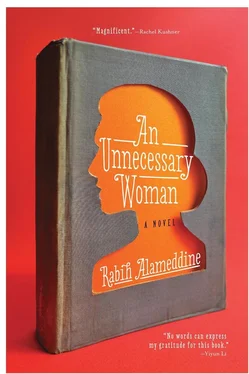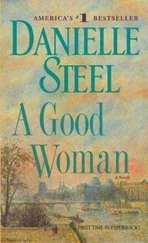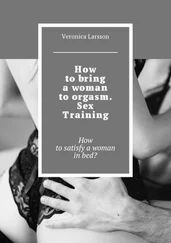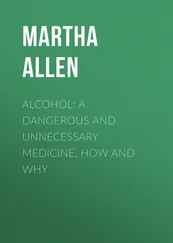Its glory shines like the lamps of a monk when he has dipped their wicks thick in oil.
I sat down with my companions and watched the lightning and the coming storm.
The language — we hear it all the time. News anchors speak classical Arabic, as do some politicians, definitely Arabic teachers, but what sputters out of their mouths sounds odd and displaced compared to our organic Lebanese tongue, our homemade, homegrown dialect. Television and radio announcers sound foreign to my ears. Those early poems, though, they are alchemy, something miraculous. They opened my ears, opened my mind, like flowers in water.
Yet my first translation was not a poem but twenty dull pages. In the school I attended, the sciences were taught in French. Rarely was Arabic used for physics, chemistry, or mathematics in any of the schools of Beirut, whose main curriculum has always been community conformity. It seems that Arabic is not considered a language for logic. A joke that used to make the rounds when I was a child, probably still going strong: the definition of parallel lines in geometry textbooks in Saudi Arabia is two straight lines that never meet unless God in all His glory wills it.
The twenty pages were a curiosity; I wished to see for myself. My first translation sounded odd and displaced as well.
The translations that followed improved, I hope.
By improved, I mean that I no longer felt as awkward about writing my name on what I translated as I did in the beginning.
My father named me Aaliya, the high one, the above. He loved the name and, I was constantly told, loved me even more. I do not remember. He passed away when I was still a toddler, weeks before my second birthday. He must have been ill, for he died before impregnating my mother with another, as he was supposed to, expected to, particularly since I was female and first. My country in the late 1930s was still trying to pull itself out of the fourteenth century. I’m not sure if it ever succeeded in some ways. My father was barely nineteen when he married and twenty-one when he died, my mother a widow at eighteen. They were supposed to spend aeons together. It was not to be.
What to do with a young widow? The families convened. My mother’s family, having thought they had one fewer mouth to feed, now had two more. It is said that my maternal grandfather hinted that they were given a defective model. The families decided that the young widow would be married off to her husband’s brother and try once more, except she wouldn’t receive a second dowry, her wedding gift. Three months after my father passed away — a three-month canonical period — my mother knelt obsequiously before a sheikh and watched as her father and second husband signed the contracts.
In time I was presented with five half siblings, none of whom I was particularly close to. Six children, one room, three narrow, lumpy mattresses on the floor; horizontal martial arts battles during the night, yawning bruised bodies in the morning.
My uncle-father was kind, if not particularly loving or affable. He paid little attention to his children, even less to me. I’m unable to recall much about him. I have no pictures of him, so in my memory his face is always obscured. In every evocation of a childhood scene, my stepfather’s face is the least detailed, the most out of focus; when I think of him my memory’s eyes have cataracts.
His sole remarkable trait was his unremitting passing of gas, which he had no inclination to control. Lunches and dinners, as the family sat on the floor surrounding him, were unbearable. The boys loved it, but I could barely eat after he broke wind. That’s probably why I’ve been skinny all my life. To this day, there are certain human smells that make my stomach swirl.
At his deathbed, on a night drunk with cicadas, as the family sat in his room, he called on each of his children to offer final wisdom, but he forgot to call on his youngest daughter or me. The youngest was devastated, and all tried to comfort her. They surrounded her, cooed to her, smothered her with mollifying maxims, passed her their handkerchiefs. I wasn’t distressed and none comforted me. No one passed me a handkerchief, not even a tissue. He had no wisdom to offer me; no one in my family did.
I am my family’s appendix, its unnecessary appendage.
I was married off at sixteen, plucked unripe out of school, the only home I had, and gifted to the first unsuitable suitor to appear at our door, a man small in stature and spirit. Marriage is a most disagreeable institution for an adolescent. We moved into this apartment and it took fewer than four years for him to stand before me, as the law required, and declaim the most invigorating of phrases: “You are divorced.” Nothing in our marriage became him like leaving it.
The impotent insect stepped out the door, and these floors never had to feel his feet again. Young as I was, I shed not a tear. I did what my nature demanded. I cleaned and scrubbed and mopped and disinfected until no trace of him remained, no scent, not a single hair, not a touch. I removed the nails on the wall where he used to hang his dirty hat and his pungent pipes that he thought made him distinguished. With a needle and spool of thread I repaired every hole in the doilies singed by the cinders of his pipe. I soaked the mosquito net in bleach.
I did not wait for the smell of him to dissipate on its own. I expunged it.
Before leaving this world, the listless mosquito with malfunctioning proboscis remarried twice and remained childless.
“Woman, you are divorced.” Of course, he could have married over me and brought a second wife into our crumbly nest. Having more than one wife wasn’t common in Beirut even then. He’d have been the only one in the neighborhood with two wives, but he could have done it.
My mother wanted me to be grateful. He may have rejected me as superfluous waste, he may have treated me as merely the dispensable product of his rib, but still I should be appreciative. “He divorced you. You can remarry a gentle widower or maybe a suitor of women more seemly who has been rejected a few times. Consider yourself fortunate.”
Fortunate? For my mother, being a pathetic suitee was a cut above being a neglected second wife. She couldn’t conceive of a world in which my husband didn’t hold all the cards. In her world, husbands were omnipotent, never impotent. Mine thought of me as the cause of his humiliation and probably continued to blame his other wives. He couldn’t risk having his women talk to one another.
I would have loved to chat with his second wife, or his third. Did he continue to wear his ridiculously large hat that cruelly emphasized his small head? I could have asked, “In all the years of marriage, did you ever see his penis? Did that shrivelly appendicle ever reach half-mast? When did he surrender? When did he end his fumbling humiliation in the dark? Was it a year, six months, a couple? I hazard it was merely a month. He pursued the charade for seven months with me.”
In The Science of Right, Kant wrote, “Marriage is the union of two persons of different sexes for the purpose of lifelong mutual possession of each other’s sexual organs.”
Kant obviously hadn’t met my husband.
Of course, like Descartes, Newton, Locke, Pascal, Spinoza, Kierkegaard, Leibniz, Schopenhauer, Nietzsche, and Wittgenstein, Kant never formed an intimate tie or reared a family.
As a young woman, I was so frustrated never to have seen a man naked that I used to wait until my husband snored before lifting the covers, lighting a match within the enveloping womb of the mosquito net, and examining his body under his buttoned cottons. Ah, the disappointment of discovering a worm in place of the monster. Of this I was supposed to be afraid? This, the forge of fertility? Yet I couldn’t rein in my curiosity. Ecce homo. I looked every chance I had, by the light of a match, not a candle, because when quickly extinguished its smoke was not as incriminating. The steady snores, the deep breathing, the lost world of sleep. Never once caught, never discovered.
Читать дальше












